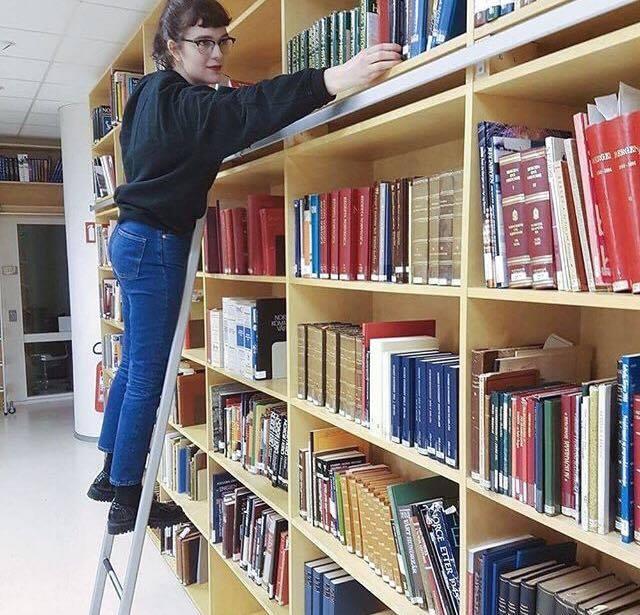From feminism to eugenics
Erika is currently completing her bachelor's degree in Gender Studies at the University of Bergen.
Main content
She has specialized in History, and as part of her studies she works as an intern at the city archive in Bergen. She encourages everyone with an interest in gender to consider the bachelor program at SKOK.
Why did you choose to take a bachelor in gender studies?
I had originally planned to study history but have always been interested in feminism, and realized that the bachelor program in gender studies gave me the opportunity to get in-depth knowledge in both fields. Additionally, the opportunity to specialize in a discipline like history makes my education relevant with regards to future job-opportunities. At the moment I'm writing my bachelor thesis on eugenics, which is the idea of improving the genetic quality of the human population. I am looking at the collaboration between noe-malthusians, f eugenics, and feminists early in the 20th century. It might seem like an odd partnership, but the neo-malthusians were concerned with food-shortage, feminists were fighting for the right to abortion and contraception, and one of the ways that the proposers of eugenics wanted to improve the population was through birth control to prevent "unfavorable" population development. After my bachelor studies I wish to continue on a Master in History, and I think that I will continue with a gender perspective there as well. What I like about gender is that you can use it as a perspective on everything - it doesn't necessarily mean that you have to right about the history of feminism.
What did you enjoy the most when you studied at SKOK?
I enjoyed studying with students that shared many of my interests. I also liked getting some academic pull to my knowledge about feminism. Since the field is relatively small, the contact with the teachers is much better than at other bachelor programs. Classes are similar to traditional school-classes, with fewer lectures in large lecture halls. That helps the students get engaged in the classes, and creates a space for discussion with the lecturer. The study has also given me knowledge that I've been able to put to use in my history courses.
What are you doing at the moment?
At the moment I am writing my bachelor essay, and I am also working as intern at the Bergen City Archive. I can't talk that much about that, since we have to sign a confidentiality agreement, but I am basically responsible for sorting and fixing old archives, which I enjoy. The internship is an elective open to all students at the Faculty of Humanities with at least 60 credits in History. Next semester I want to start on the master program in History.
Do you have any advice for those considering a bachelors degree or one-year program at SKOK?
I would definitely encourage students to study at SKOK. Through gender studies you aqcuire a lot of knowledge with contemporary relevance. Among other things, the curriculum can be tied up to current debates on trans-people, and to gender equality. The courses also offer insights on different theoretical perspectives on gender that can be used to understand contemporary social processes.


